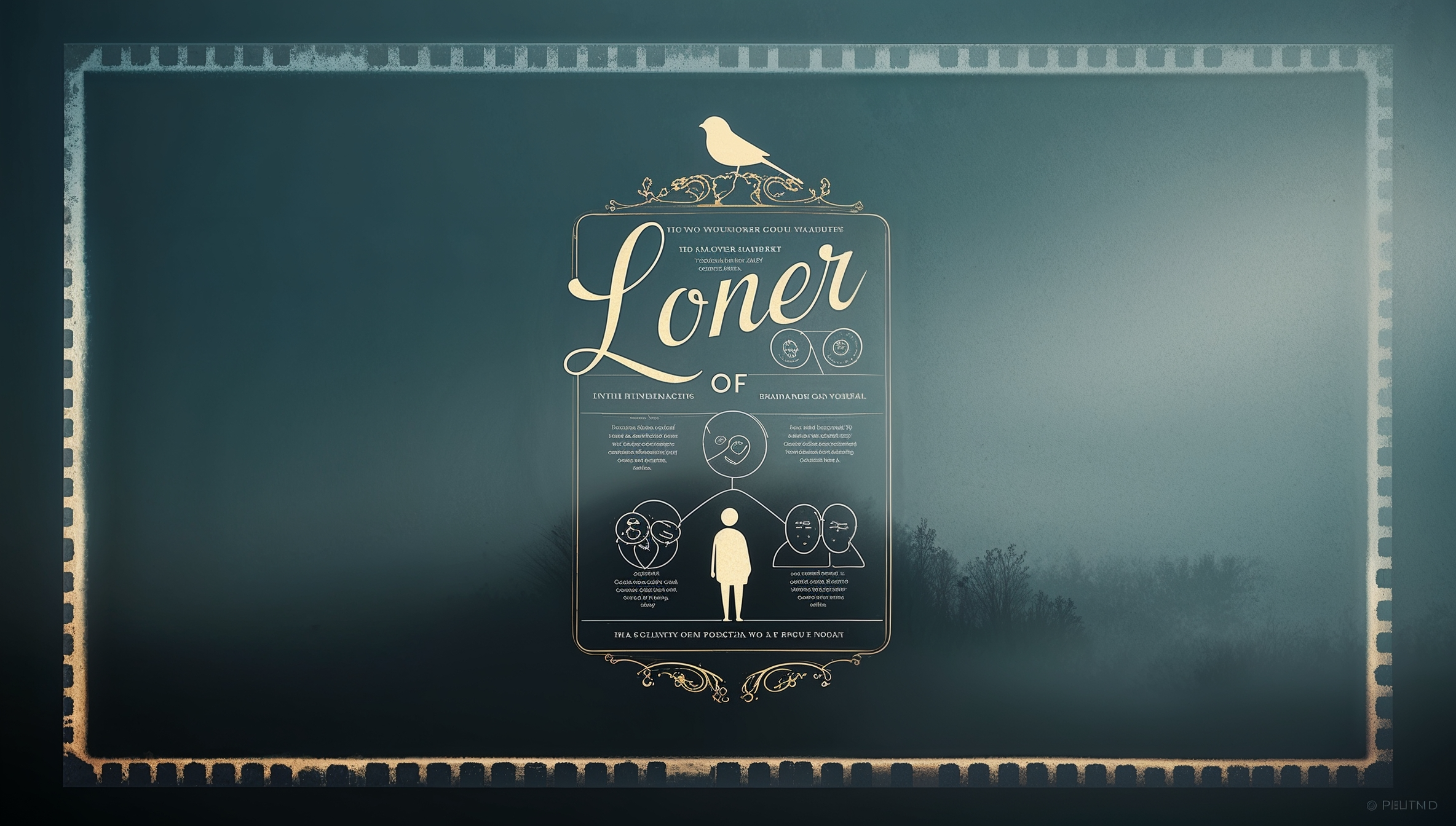Have you ever felt the urge to be alone, only to have others misunderstand your feelings as cold or unfriendly?
Most people think loners are inherently mean or socially awkward, but that’s not the full picture. Many loners tend to prefer solitude because it simply feels right for them. It’s not bad—it’s just different from what most people expect. Imagine being at a party and, instead of enjoying the chaos, you find comfort in standing alone, just observing. That’s not an act of rejection; it’s a choice for peace.
However, it’s important to differentiate between short-term feelings of loneliness and chronic loneliness. Chronic loneliness arises when these feelings become persistent and significant over time, often leading to a desire for companionship that remains unfulfilled due to various circumstances.
Understanding Loner Personality: Why They Prefer Solitude

Loners tend to be individuals who prefer solitude and may avoid social interactions, but this doesn’t necessarily mean they are mean or antisocial.
Factors, including upbringing, life experiences, and personal preferences, can shape a loner personality. For instance, some individuals may have had few friends during childhood, while others might have had many friends but still preferred solitude. These early social experiences can influence their preference for solitude and shape their social behaviors as adults.
Understanding the reasons behind a loner’s behavior can help dispel common misconceptions and stereotypes.
The word “loner” often has a negative connotation, but is it deserved? There are different types of loners, each with personality traits and reasons for seeking time away from the crowd. Some choose it intentionally, like the intentional positive loner, who seeks personal growth and independence. They may even use that time to start their own business or focus on passions that thrive in alone time. Others, like the intentional negative loner, might isolate themselves due to a negative outlook on society or because social interactions seem overwhelming.
Historical and Cultural Perspectives on Loners
Throughout history and across cultures, the concept of loners has been viewed and perceived in various ways. In some societies, being a loner was seen as a sign of strength and independence, while in others, it was viewed as a negative trait.
In ancient Greece, for example, philosophers like Aristotle and Epicurus valued solitude and quiet contemplation as essential for personal growth and self-reflection. The idea of being a loner was not seen as a negative trait, but rather as a sign of intellectual and philosophical pursuits.
In contrast, in many traditional Asian cultures, such as in Japan and China, being a loner was often viewed as a sign of weakness or social failure. In these cultures, social harmony and group cohesion were highly valued, and individuals who preferred to spend time alone were often seen as outsiders or misfits.
In modern Western societies, the concept of loners has taken on a more nuanced meaning. With the rise of individualism and the decline of traditional social structures, being a loner is no longer seen as a negative trait. In fact, many people now view being a loner as a sign of independence, self-reliance, and personal strength.
However, the negative connotation of being a loner still persists in some contexts. For example, in the workplace, being a loner can be seen as a sign of lack of teamwork or social skills. In social situations, being a loner can be seen as awkward or antisocial.
Despite these mixed views, being a loner can have its benefits. Intentional positive loners, for example, often report higher levels of creativity, productivity, and self-awareness. They tend to prefer solitude and quiet contemplation, which allows them to focus on their own interests and pursuits.
On the other hand, unintentional loners may struggle with social interactions and feelings of loneliness. Chronic loners, who have a persistent need to stay alone, may experience negative effects on their mental and physical health.
In conclusion, the concept of loners has been viewed and perceived in various ways throughout history and across cultures. While being a loner can have its benefits, it can also have negative consequences. Understanding the different types of loners and their motivations can help us better appreciate the complexities of human interaction and the importance of social connection.
Types of Loners: Chronic Loners and More

Intentional Positive Loners
Intentional positive loners choose to be alone because it fits their personality or lifestyle.
They are often autonomous, resistant to pressure from others, and interested in learning more about their experiences and emotions.
They may start their own business or pursue solo projects, enjoying the freedom and independence it brings.
Intentional Negative Loners
Intentional negative loners choose to be alone because they dislike other people or have strong anti-social tendencies.
They may have negative outlooks on society and prefer not to associate or assimilate with others.
This type of loner personality can be a sign of underlying issues, such as anxiety or depression.
Signs of a Loner
You prefer solitude and may avoid social interaction, especially in large groups.
You enjoy spending time alone and engaging in activities that bring you joy and fulfillment.
You may have a small circle of close friends and family members, but you don’t feel the need to socialize constantly.
You value your alone time and may feel drained or overwhelmed by too much human interaction.
Debunking Common Misconceptions

Loners are not inherently mean or antisocial; they prefer to spend time alone.
Being a loner doesn’t mean you’re shy or lack social skills; you may prefer to observe and listen rather than engage in small talk.
Loners can be brilliant and creative, using their alone time to pursue hobbies and interests.
The Benefits of Being a Loner

You have more time to focus on personal growth and self-improvement.
You can pursue solo projects and start your own business, enjoying the freedom and independence it brings.
You may be more empathetic and understanding of others, having spent time reflecting on your thoughts and emotions.
Building Relationships as a Loner: Navigating Social Interaction
You may need to try to reach out to others and build relationships, but this can be rewarding.
You can use your alone time to reflect on your relationships and identify areas for improvement.
You may be more selective about the company you keep, surrounding yourself with people who respect and understand your need for alone time.
Embracing Your Inner Loner
Accepting and embracing your loner personality is essential, rather than trying to change or hide it.
You can use your alone time to pursue hobbies and interests and to focus on personal growth and self-improvement.
You may find that being a loner brings you peace and contentment and you’re more productive and creative when working alone.
Conclusion

Being a loner is not inherently mean or antisocial; it’s simply a personality trait that prefers solitude and alone time.
Understanding and embracing your loner personality allows you to build meaningful relationships, pursue solo projects, and enjoy peace and contentment.
Not every loner is the same, and not every loner is mean. It’s time to understand that the desire for solitude can be healthy, and often, it is the beginning sign of wanting something more authentic—something deeper than small talk or fleeting relationships. Whether you’re an introvert or someone who values the company of your thoughts, the idea of being a loner shouldn’t be dismissed as negative or undesirable.
What if we tried to understand their stories instead of judging loners? Their experiences might teach us about the beauty of spending time with oneself and the strength it takes to enjoy one’s own company. Let’s redefine what it means to be a loner without stereotypes and assumptions and embrace the quiet power behind choosing when and how to engage with the world.







Leave a Reply